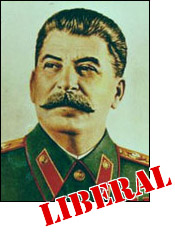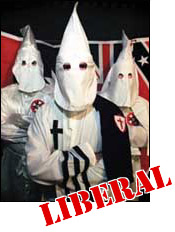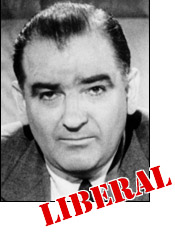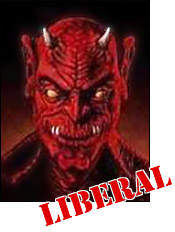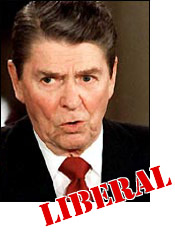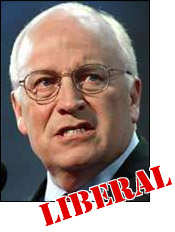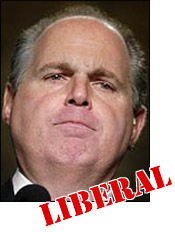
|
Come Nineveh, Come Tyre Allen Drury, 1973
The Promise of Joy
Premise Because Drury likes conventions more than elections, his United States is basically a one-party state. The unnamed majority party has 84 senators to the minority party's 16, and whoever wins the nomination of the majority party is guaranteed the White House. Oddly, the majority party has a conservative wing and a liberal wing, while the minority party is centrist. Funny how that works. Much of the argument between the right and left wings of the majority party revolves around a couple of foreign wars in which the US is entangled, one in Panama, the other in the fictional African nation of "Gorotoland." Before these books begin, conservative Orrin Knox has been nominated for president while his chief opponent, liberal Ted Jason, has been named his running mate in a move toward creating a unity ticket. However, at their first joint appearance, one of them is assassinated. In Come Nineveh, Come Tyre, Knox is assassinated, and Jason is elected president with a fellow liberal as his running mate. In The Promise of Joy, Jason is assassinated, and Knox is elected president with a fellow conservative as his running mate. In Come Nineveh, Come Tyre, the new Soviet premier sends Jason a letter saying that he wants to work together to create a lasting peace. Jason, a "lightweight and a weakling," is "ashamed of himself for questioning for even a moment so honorable and peace-loving a man," and vows to "bend over backward to assist and encourage the leader whose task was as difficult, and whose motivations were as idealistic, as his own." Thus, he unilaterally withdraws American troops all over the world. The USSR replies by invading all the countries from which the US has withdrawn and also Alaska. Jason is summoned to Moscow where the Soviet premier yells at him, reducing him to a recluse mewling at White House portraits. Meanwhile, a liberal senator from Wyoming — and if you weren't laughing already, that's your cue — takes the opportunity to push legislation through the Senate that turns the United States into a Stalinist dictatorship with him at the helm, while the Secretary of Defense screams at Jason, "For God's sake, man, will ye no act like our leader and not like a poor wee mouse!" In the end, Jason and his liberal vice president commit suicide, and the senator-turned-dictator invites his master, the Soviet premier, to the White House to confirm that, yes, by electing a liberal as president, the American people have indeed allowed the USSR to take over the world. In The Promise of Joy, Orrin Knox, who believes in "firmness," being "tough," and securing "the military strength without which [...] negotiation and agreement is impossible," is opposed by the Congress, the courts, and above all, the liberal media, embodied by the Times and the Post — or as Drury delights in calling them, patting himself on the back for his bons mots, the Pimes and the Tost — and by a TV commentator whom Drury has named, I kid you not, Frankly Unctuous. When the Soviets and the Chinese attack American positions immediately after Knox's inauguration, Knox responds by escalating the conflict, and the world fears that nuclear war will be the result. But Knox continues to throw everything America has at the Soviets and the Chinese, and they respond by nuking— each other! Go figure. Knox commands the Russian and Chinese people to overthrow their governments, and in hours the war has been halted and the world greets two new countries: the United States of Russia and the United Chinese Republic. Knox is hailed as the savior of mankind. Yet the new governments, the products of military coups, are just as intractable as the old, and eventually they go back to war. This time it is primarily a land war, and the Chinese are clearly winning. American liberals freak out at the demise of their beloved Stalinists and demand that Knox intervene to save Russia. In the end, Knox does indeed intervene, but on whose behalf? That mystery is saved for the next sequel, except there wasn't one.
Evaluation
At one point in Come Nineveh, Come Tyre, the British ambassador to the UN asks, "How far from the truth can this world get and still survive? How far can it afford to let the Soviet Union and her friends persuade it that black is white, up is down, yea is nay, evil is good?" This is ironic, considering the many ways that Drury has inverted reality in creating the world of his novels. Drury writes repeatedly about the threat of "the violent." On the very first page of Come Nineveh, Come Tyre he writes that Jason was "confident of his ability to control the violent." In The Promise of Joy characters say things like, "She was about to leave him because he wouldn't break away from the violent." It's all about the violent. So who are the violent? Why, peace activists, of course! In Drury's world, American soldiers who shoot people dead and the politicians who send American soldiers to shoot people dead are not violent, or at least not the violent. (I guess it's lucky these books weren't written thirty years later or he'd have called them "teh violent.") So who are the violent?
Part of the impetus behind these novels was Drury's conviction that America had entered an "utterly rabid age." Both in the books and in real life, America was recovering from a decade's worth of assassinations. The problem for Drury is that he wanted to blame peace activists — you know, the violent — for knocking off conservatives, yet in real life, the people who got killed were John Kennedy, Malcolm X, Martin Luther King, and Robert Kennedy. Inconvenient! But easily fixed. Drury just arranges things so that right-wing politicians are the ones getting knocked off. Goddamn fictional violent pacifist black supremacist Stalinist KKK members!
He's also a racist, as most liberals are in Drury's world. Not only does the KKK make up much of the liberal rank-and-file, but in The Promise of Joy, once the war stars the liberals — mainly through the media, since the media is entirely liberal — all clamor for the president to attack the "GODLESS YELLOW HORDES." (There are a lot of all-caps passages in these books.) In a typical speech, Van Ackerman crows that the public, being racist liberals for the most part, will "turn to the man who understands them and knows what they really want, not all this idealistic crap [...] I won't have to feed them anything to get them to follow me, after this — except maybe a few of the damned niggers and the damned kikes and the damned conservatives."
(Did I mention that it turns out in Come Nineveh, Come Tyre that it turns out that the reason it's been such a harsh winter is because dastardly Soviet scientists have figured out how to control the weather? I probably should have mentioned that.) So, considering that these books fail as literature and as political analysis, the next question is, how are they as historical artifacts? What do these books tell us about the mindset of the hyperventilating right-winger of the 1970s in comparison to his counterpart today? In the apocalypse class I crashed this spring, those of us who remembered the Cold War tried to impress upon the disbelieving students that between 1945 and 1989, people actually did expect that nuclear war was basically inevitable. Drury's books support this contention. He offers a choice: elect liberals who will back down when the Soviets make aggressive moves, or conservatives who will escalate the conflict and risk nuclear war in the hopes that the Soviets will back down. There is no third option: trying to establish peace through negotiation is just another way of backing down. In Come Nineveh, Come Tyre, the Soviet premier chortles, "We have 'thaws,' we have 'détentes,' we have 'freezes,' we have whatever other easy, sleazy catchwords your media dreams up for us, but all the time we just go steadily right along, no matter who is in charge here, no matter what apparent outward twists and turns of policy we may find advisable: we still go steadily right along." (PS: "He was so happy he was almost giggling.") As Drury sees it, it's either red or dead, and he prefers the latter. Of course, he was wrong. It's funny — Drury almost never mentions real political figures by name, but he does explicitly declare that "not since Nikita Khrushchev sent John Kennedy dazed and trembling away from his savage raking in Vienna had the ordure been heaped with such savage ferocity" as in Come Nineveh, Come Tyre. If Kennedy didn't meet Drury's standards — Bay of Pigs Kennedy, Cuban Missile Crisis Kennedy — then I have to assume that after Jimmy Carter was elected, after Carter did the single thing Drury uses as an emblem of American weakness and gave Panama the canal, after he responded to the Soviet invasion of Afghanistan not with a counterinvasion but with an Olympic boycott... hell, Drury probably expected that by 1980 Brezhnev would be sleeping in the Lincoln Bedroom. But that didn't happen.
So here I am in what, to Allen Drury, was the future. According to Drury, I'm living in a world in which Mike Dukakis won the presidency by turning "conservative" into a smear. Dukakis then turned the country over to the evil, cackling Mikhail Gorbachev. But since "in the last analysis all an international confrontation really involved was character — one man's guts against another man's guts," the avenging son George W. Bush was able to drive out the Russkies through sheer force of will. He knew what to do! He's The Decider! And yet when he started some foreign wars, the relentless liberal media aggressively questioned his every move. What can I say? The man was a prophet. No wonder he won a Pulitzer. Return to the Calendar page! |

